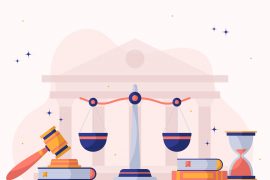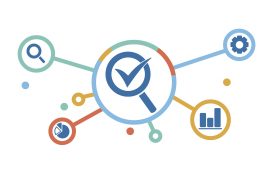In recent years, due to the digital age, one can only observe the explosion of personal data shared on social networks. Platforms like Facebook, Twitter, Instagram, and LinkedIn are teeming with information about users, from personal details to professional preferences. Scraping, or automated data extraction, has become a common practice to gather this information for various purposes. However, this method raises important ethical and legal questions. Let’s take a closer look in this article.
What is Data Scraping?
Data scraping, or web scraping, is a technique that involves extracting information from websites using automated scripts, dedicated software, or bots.
Unlike manual data extraction, scraping allows for the quick and efficient collection of large amounts of information. This can include user profiles, contact details, posts, comments, images, etc.
Scraping is used for numerous purposes: analysis and research, competitive monitoring, content aggregation, SEO optimization, AI development, online reputation management, lead generation, task automation, etc. Although powerful, it must be done ethically and legally, respecting individuals’ privacy and the terms of use of the websites. And that is precisely where complications sometimes arise.
The Consequences of Data Scraping
The Risk of Privacy Invasion
Data scraping can lead to violations of privacy. The collected information can be used for malicious purposes, such as identity theft or unauthorized surveillance. Users may be unaware that their data is being extracted and used.
Benefits for Businesses
Despite the risks, data scraping offers advantages for businesses. It allows them to obtain valuable information about consumers, improve ad targeting, and analyze market trends. However, organizations must tread carefully to avoid legal implications.
Legal and Regulatory Framework for Scraping
Data Protection Laws
In many countries, personal data protection is governed by strict laws. In Europe, the General Data Protection Regulation (GDPR) imposes rigorous rules on the collection and processing of personal data.
In the United States, the California Consumer Privacy Act (CCPA) offers similar protection to California residents.
These regulations require that personal data be collected transparently and with the explicit consent of individuals.

Social Network Terms of Use
Social networks have their terms of use, which often prohibit data scraping. For instance, Facebook’s terms stipulate that users must not scrape data from the services without permission. Similarly, Twitter prohibits massive data scraping without prior agreement.
By violating these terms, scrapers may face legal actions from the platforms.
Personal Data Scraping: Legality and Limits
Ethical Scraping vs. Illegal Scraping
Ethical scraping is generally done with user consent and in compliance with the site’s terms of use. For example, academic researchers may request explicit permission to access specific data for study purposes.
In contrast, illegal scraping involves collecting data without consent and in violation of the terms of service, which can result in legal penalties.
The Case of LinkedIn and hiQ Labs
Several legal cases have highlighted the issues of data scraping. In 2017, LinkedIn sued hiQ Labs for scraping data from its public user profiles. Initially, the court ruled in favor of hiQ, arguing that public data could be scraped. However, LinkedIn appealed, and the case was finally resolved in favor of the professional social network in 2022.
This case illustrates the gray areas and legal complexities surrounding scraping.
How Can Businesses Comply with Regulations?
1# Obtain Consent
To avoid legal issues, businesses must obtain the explicit consent< of users before collecting their data. This can be done through clear privacy policies and active consent mechanisms.
2# Use Official APIs
Many social platforms offer official APIs (Application Programming Interfaces) that legally and compliantly provide data access. Using these APIs, businesses can avoid the risks associated with unauthorized scraping.
3# Respect the Right to Object
If a person objects to the processing of their data, the business must immediately stop scraping and processing that information. By incorporating mechanisms to honor objection requests, organizations can remain compliant with regulations and protect user privacy.
4# Follow Regulatory Changes
Data protection laws are constantly evolving. It is crucial for businesses to keep up with regulatory changes and adapt their data collection practices accordingly.
Scraping personal data from social networks presents a paradox between opportunities and risks. While it offers significant advantages for data analysis and marketing, it also raises crucial privacy and legality questions. To navigate this complex landscape, it is necessary to adopt ethical and compliant practices by obtaining user consent and using approved data collection methods. Balancing innovation with data protection is essential not only to maintain user trust but also to avoid legal implications and penalties.







